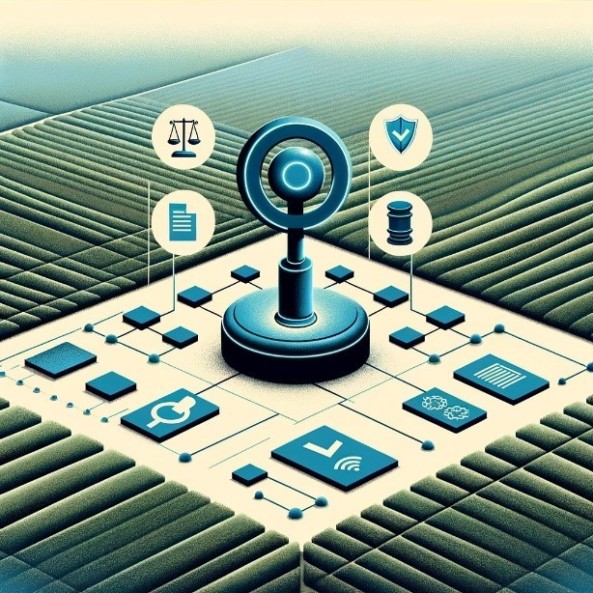Precision agriculture, a farming management concept that uses information technology and a wide range of items such as GPS guidance, control systems, sensors, robotics, drones, autonomous vehicles, variable rate technology, GPS-based soil sampling, automated hardware, telematics, and software to optimise field-level management with regard to crop farming.
As agriculture technology evolves, precision agriculture has emerged as a revolutionising force in the field. Precision agriculture, or smart farming, leverages data, analytics, and technology to optimise crop yields and increase efficiency. However, this new frontier is not without its legal implications. For farmers and AgTech companies, understanding these legal dimensions is crucial to fully harness the benefits of precision agriculture.
Ownership and Use of Agricultural Data
At the heart of precision agriculture is data—lots of it. From soil sensors to drone imagery, data informs decisions on every aspect of farming. But who owns this data? And what can they legally do with it? Typically, the ownership rights of agricultural data can be complex, involving agreements between farmers, technology providers, and third-party service providers. Ensuring these agreements are clear and fair is paramount, as is ensuring compliance with data protection regulations.
Liability for Data-Driven Decisions
When decisions are made based on data analysis, it raises the question of liability for those decisions. If a data-driven recommendation leads to a crop failure, who is responsible? Is it the technology provider, the farmer, or the data analyst? The legal framework around liability in precision agriculture is still developing, and it’s essential for all parties to have robust contracts that delineate responsibilities.
Intellectual Property Rights
Precision agriculture technologies often involve novel inventions, software, and business methods, all of which can be protected under intellectual property (IP) law. AgTech companies must navigate patent law, copyright, and trademark to protect their innovations. Conversely, farmers must ensure they are not inadvertently infringing on someone else’s IP rights when utilising these technologies.
Regulatory Compliance
Precision agriculture often involves the use of drones, autonomous vehicles, and other advanced technologies. Each comes with its own set of regulations, such as airspace rules for drones or road regulations for autonomous vehicles. AgTech companies and farmers must stay abreast of these regulations to avoid costly violations.
Cybersecurity Concerns
With the increase in technology use comes the increased risk of cyber-attacks. Precision agriculture systems must be secure to protect against data breaches that could lead to significant losses. Legal measures such as implementing strong cybersecurity policies, ensuring contract clauses provide for data security, and understanding the legal consequences of a breach are critical.
Conclusion
As precision agriculture continues to grow, so too will its legal complexities. It’s an exciting time for innovation in farming, but with that innovation comes the need for careful legal consideration. Farmers, AgTech companies, and legal advisors must work together to navigate these waters, ensuring that the immense benefits of precision agriculture can be realised without undue legal risk.
For stakeholders in the AgTech sector, partnering with a law firm that understands the intricacies of agriculture and technology law is not just an advantage—it’s a necessity.
Contact us today should you wish to explore legal implications of your involvement in the AgTech space and to see how we can assist you. You can contact us at 03 8691 3111 or send an email to hello@alliedlegal.com.au.


